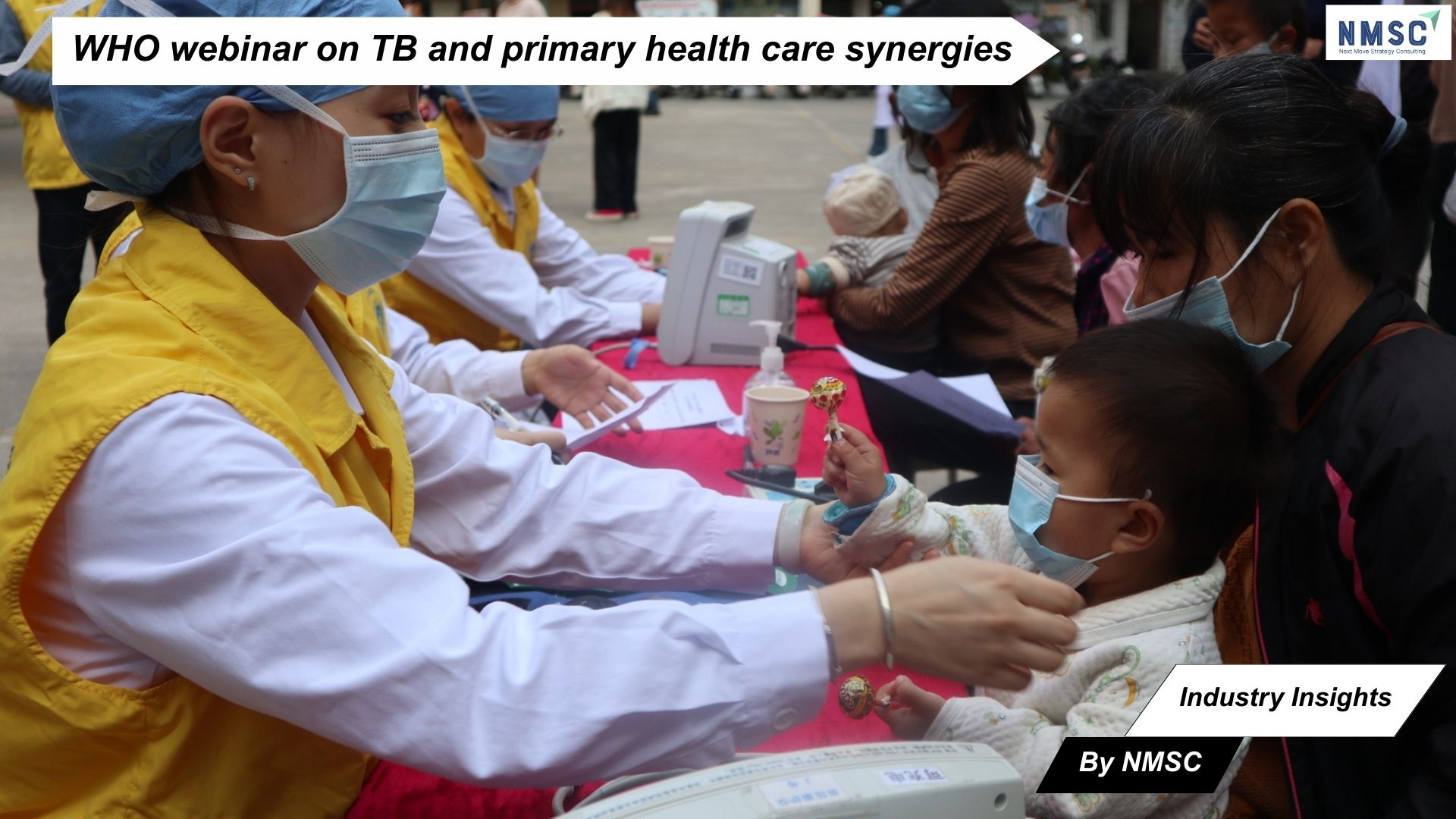WHO webinar on TB and primary health care synergies
Published: 2025-08-19

Industry Insights from Next Move Strategy Consulting
The World Health Organization (WHO) is hosting a global webinar to introduce its newly released policy brief, which focuses on leveraging synergies between tuberculosis (TB) and primary health care (PHC) to accelerate progress toward universal health coverage.
Key Focus Areas of the Webinar
-
The webinar will emphasize how integrating the TB response within a PHC framework can ensure equitable, accessible, and people-centered TB services.
-
It will highlight the role of this approach in tackling the social and economic determinants of health that drive TB.
-
The discussion will also focus on how such alignment can strengthen overall health system resilience.
-
The event will showcase ways to deepen community and civil society engagement in health initiatives.
-
It will further explore how the approach can improve the delivery of essential services across all levels of care.
Session Objectives and Insights
The session will present an overview of the newly released policy brief, highlight country and regional experiences, and share practical guidance on leveraging synergies between TB and PHC. It will also demonstrate how these approaches can be effectively applied and scaled across diverse health system contexts.
Key Speakers and Stakeholder Representation
The webinar will feature distinguished speakers, including senior leadership from the World Health Organization (WHO), alongside representatives from national ministries of health. In addition, the session will bring forward the voices of communities and civil society organizations, as well as contributions from leading technical experts and funding partners, ensuring a diverse and inclusive dialogue.
Who Can Participate
The event welcomes all stakeholders committed to ending tuberculosis (TB) and advancing PHC-oriented health systems. This includes government agencies, national and subnational health authorities, civil society organizations, affected communities, as well as staff from WHO, funding agencies, and implementing partners.
Source: World Health Organization (WHO)
Prepared by: Next Move Strategy Consulting















Add Comment